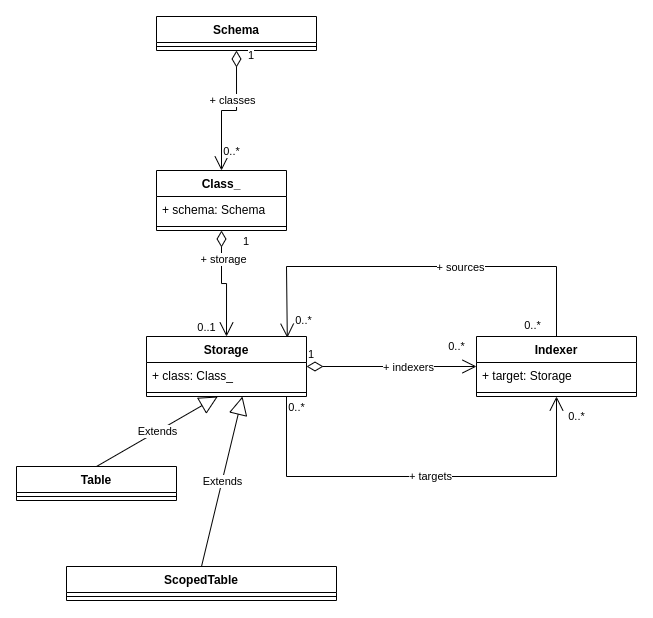Osm Admin: Indexing
2 years ago ∙ 3 minutes read
It's often needed to compute, or index, data in database tables based on data in other tables.
This article is the first sketch of a consistent indexing solution.
Contents:
Indexed Properties In Data Objects
Let's add computed level and id_path properties to the Scope class that will help to deal with hierarchical nature of scopes:
/**
* @property ?int $parent_id #[
* Serialized,
* Table\Int_(unsigned: true, references: 'scopes.id', on_delete: 'cascade'),
* ]
* @property int $level #[Serialized, Table\Int_(unsigned: true)]
* @property string $id_path #[Serialized, Table\String_()]
* @property ?string $title #[Serialized]
*/
#[Storage\Table('scopes')]
class Scope extends Object_
{
use Id;
}Scope::$level
level equals 0 for the root scope, and it's parent.level + 1 for all other scopes.
level is computed on insert, and on parent_id or parent.level change.
Scope::$id_path
For the root scope, id_path equals id converted to string. For other scopes, it's {parent.id_path}/{id}.
It's computed on insert, and on parent_id change.
Queries
You'll be able to create/edit/delete scopes via Admin UI, HTTP API, or directly in code. Either way, you'll use queries to do the actual manipulation. Let's see how scope queries will look like.
Creating Global Scope
The root scope is created during initial schema migration:
class Storage\Scopes extends Storage\Table
{
public function seed(?Storage $current): void
{
$this->query()->insert((object)[
'title' => __('Global'),
]);
}
} After the initial migration, the scopes table had a record for the root scope:
id parent_id level id_path data
1 null 0 1 {"title": "Global"}Retrieving Scopes
Then, you can query scopes table with the Laravel-like where()/get()/first()/value() syntax:
$rootId = query(Scope::class)
->whereNull('parent_id')
->value('id');Creating Child Scopes
You can create child scopes manually using the insert method:
$retailId = query(Scope::class)->insert((object)[
'title' => __('Retail'),
'parent_id' => $rootId,
]);
$enId = query(Scope::class)->insert((object)[
'title' => __('English'),
'parent_id' => $retailId,
]);
$deId = query(Scope::class)->insert((object)[
'title' => __('Deutsche'),
'parent_id' => $retailId,
]);scopes table:
id parent_id level id_path data
1 null 0 1 {"title": "Global"}
2 1 1 1/2 {"title": "Retail"}
3 2 2 1/2/3 {"title": "English"}
4 2 2 1/2/4 {"title": "Deutsche"}Updating Scopes
You can mass-update scopes based on some criteria:
query(Scope::class)
->where('parent_id', $retailId)
->update((object)[
'parent_id' => $rootId,
]);scopes table:
id parent_id level id_path data
1 null 0 1 {"title": "Global"}
2 1 1 1/2 {"title": "Retail"}
3 1 1 1/3 {"title": "English"}
4 1 1 1/4 {"title": "Deutsche"}Deleting Scopes
You can mass-delete scopes based on some criteria:
query(Scope::class)
->where('id', $retailId)
->delete();scopes table:
id parent_id level id_path data
1 null 0 1 {"title": "Global"}
3 1 1 1/3 {"title": "English"}
4 1 1 1/4 {"title": "Deutsche"}Indexing
What's left is to implement indexing - a process that tracks data changes and updates dependent data based on specified computation logic.
Let's begin.
Indexers
After inserting, updating or deleting an object in a table - the indexing source ,- the query also invokes the indexers to update other tables that contain dependent data - the indexing targets:

As you can see, an indexer may have many source tables. Also, a target table may have many indexers that update it, each updating its own part of the target.
Declare an indexer by extending the Indexer class and specifying its short unique name, sources and targets using the #[Name], #[Source] and #[Target] attributes:
#[
Name('scope'),
Source(Scope::class, insert: true, update: true, delete: true),
Target(Scope::class, insert: true, update: true, delete: true)
]
class Indexers\Scope extends Indexer
{
}Computation Logic
Provide the computation logic for the level and id_path properties in the index_level() and index_id_path(), accordingly:
class Indexers\Scope extends Indexer
protected function index_level(?Scope $parent): int {
return $parent->level ?? 0;
}
protected function index_id_path(?Scope $parent, int $id): string {
return $parent ? "{$parent->id_path}/{$id}" : "{$id}";
}
}Both methods expect parent as a parameter, provide it in the index_parent() method:
class Scopes extends TableQuery {
...
protected function index_parent(?int $parent_id): ?Scope {
return $parent_id
? query(Scope::class)
->where('id', $parent_id)
->hydrate()
->first(['level', 'id_path'])
: null;
}
}Computing Property Values Before INSERT Or UPDATE
Before running the underlying INSERT statement, the query(...)->insert() method runs inserting() method of the table indexer. If there are several indexers that update the target table, all of them are called, and each decides whether it should do something.
Similarly, the query(...)->update() method calls the updating() method of the table indexer.
These methods execute index_*() methods and add computed values to the inserted/updated data.
Computing Property Values After Changes In Source Tables
After INSERT, UPDATE or DELETE in a table, index() method is executed in all indexers that list that table as a source.
The index() method inserts, updates, or deletes the records in the target table using the computation logic specified in the index_*() methods.

